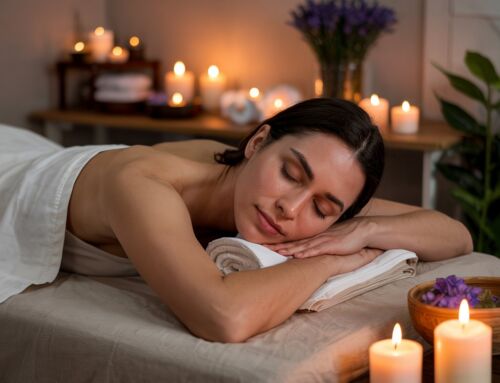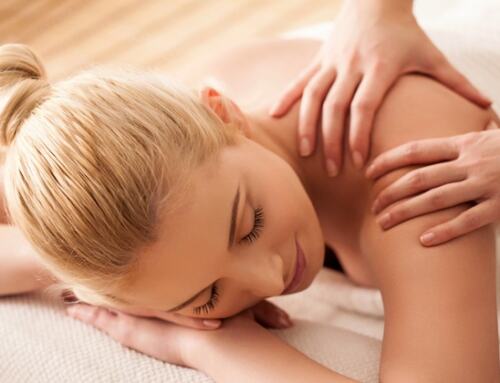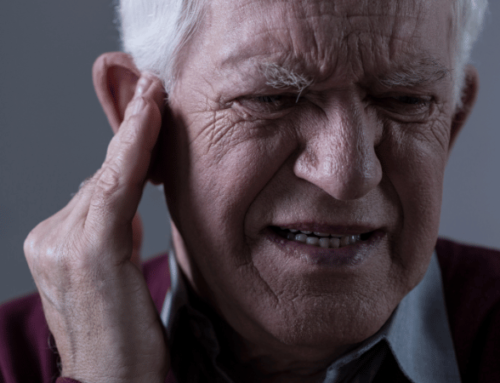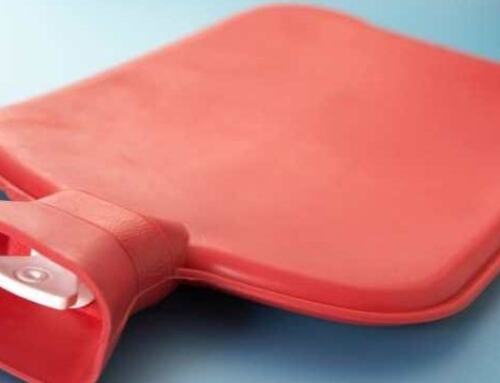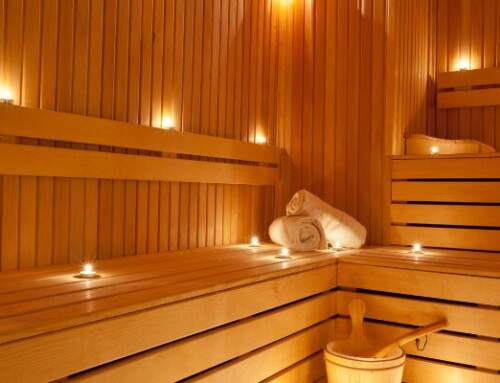Why Do I Keep Waking Up At Night?
It’s 2 a.m. and you’re wide awake. Again. What’s the deal?
First of all, understand that waking up in the middle of the night is completely normal and part of our human DNA, says Jose Colon, MD, founder of Paradise Sleep and author of The Sleep Diet.
“Nobody sleeps through the night,” Colon says. In fact, he says even 4 to 6 nocturnal awakenings are considered normal. “This goes back to our caveman days where one would wake up, scan the environment, make sure there are no tigers, and then go back to sleep,” he says.
That last part is key: You should be able to go back to sleep. If you can’t, one of these 15 sleep stealers may be standing between you and a good night’s rest:
Sleep stealer: having to pee
Nocturia (nighttime urination) has many triggers. But if you find yourself waking up 2 to 4 times a night to pee—even when you limit your evening drinking—you might want to try sipping more water before bed. Just add a pinch of salt, says Jonathan Steele, RN, executive director of WaterCures.org. Our bodies try to maintain an internal balance of water and electrolytes, Steele says. Too much water without enough salt, and your body may try to jettison some H20, which may explain why you’re waking up in the middle of the night to pee.
Sleep Solution: About 30 minutes before going to sleep, drink a small glass of water with a pinch of unprocessed sea salt, Steele suggests. “Unprocessed salt helps the water to get into all of our cells,” he says. You need to take the salt with H20 to ensure your body retains both, he adds.
Sleep stealer: a hot room
According to the National Sleep Foundation (NSF), feeling hot can make it hard to stay (and fall) asleep. “The temperature of the room, what you wear or don’t wear to bed, the sheets and blankets—all figure in to keeping your body at the right temperature,” says Marc Leavey, MD, a primary care specialist with Mercy Medical Center in Baltimore.
Sleep Solution: People can sleep comfortably at a range of temperatures. But a room temp between 60 and 65°F is ideal for most, the NSF reports. Also, try a bath before bed, Leavey suggests. “Taking a warm bath raises your temperature in the tub slightly, while exiting the tub triggers a slight drop in temperature—a signal that your brain associates with sleep,” he explains. [Here’s what you can do for night sweats]
Sleep stealer: your late-night Instagram addiction
If your bedtime routine involves scrolling through Twitter and Instagram, your updates may be messing with your sleep. “Exposing eyes to light during the evening stops the body from making melatonin, the sleep hormone,” explains Richard L. Hansler, PhD, of John Carroll University. From tablet screens to smartphones, electronic devices are light sources people tend to hold close to their faces, which may make them potent sleep disrupters.
“Exposing eyes to light during the evening stops the body from making melatonin, the sleep hormone,” explains Richard L. Hansler, PhD, of John Carroll University. From tablet screens to smartphones, electronic devices are light sources people tend to hold close to their faces, which may make them potent sleep disrupters.
Sleep Solution: Dim your room lights and aim to make your last hour before bed screen-less. Too hard? Research suggests the blue light emitted from smart phones is the most problematic. Dimming your phone or tablet’s light, and holding it at least a foot or two from your face, makes it less likely to mess with your slumber.
Sleep stealer: mild depression
Just as people with major depression can have trouble falling or staying asleep, so can the 17% of women who have a low-grade form of the illness. But because their depression symptoms—which include negative thoughts, excessive worry, lack of energy, and body aches—aren’t as severe, women with mild depression are less likely to be diagnosed with sleep issues.
“There’s a complex relationship between poor sleep and mild depression, and it can be difficult to determine which came first,” says Aarti Gupta, Psy.D., founder and clinical director of TherapyNest, a private psychology practice in Palo Alto, Calif. It’s a 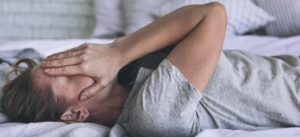 vicious circle, she says: Depression symptoms set up poor sleep habits that can cause you to stay up or wake up in the middle of the night. “And without a good night’s rest, it’s difficult to function at your highest capacity the following day—which manifests as feeling tired, sad, and mildly depressed and sets up the cycle for lack of sleep for the next day.”
vicious circle, she says: Depression symptoms set up poor sleep habits that can cause you to stay up or wake up in the middle of the night. “And without a good night’s rest, it’s difficult to function at your highest capacity the following day—which manifests as feeling tired, sad, and mildly depressed and sets up the cycle for lack of sleep for the next day.”
Sleep solution: Because the symptoms of mild depression can be similar to those many women experience during menopause, it’s important to discuss your mental health history with your primary care doctor or a psychologist to determine whether your depressive symptoms existed prior to menopause or if the hormonal changes triggered or exacerbated them. Your physician will design a treatment plan that includes talk therapy, lifestyle changes, medication, or all three.
Sleep stealer: getting older
Everyone has a biological clock that determines when they get tired at night and when their body wakes up in the morning. But starting around age 40, your clock begins to shift. Researchers aren’t sure exactly why this happens, but the result is that your body will naturally wake up increasingly earlier, decreasing the amount of sleep you’re getting, explains Hans Van Dongen, Ph.D., director of the Sleep and Performance Research Center at Washington State University. By the time you hit your 60s, you could be waking up two hours earlier than you did in your 30s.
Sleep solution: Move up your bedtime to accommodate your body’s new sleep schedule. If you’re worried that you’ll lie awake because you’re going to bed earlier than you’re used to, Van Dongen offers reassurance. “You’re probably naturally getting tired earlier, but it’s easy to ignore or not notice the sleepiness if you’re used to staying up late,” he says. “Most older people find that when they start getting into bed earlier, they fall asleep easily.”
Sleep stealer: drinking alcohol before bed
While that second cocktail may make you sleepy, it can also disrupt your restful night’s sleep. “Alcohol has a sedative effect that, if you drink enough, can put you to sleep quite easily,” Dr. Leavey says. “Over the first few hours, you metabolize that alcohol, with the alcohol producing a form of sleep that can prevent the healthy rapid eye movement sleep that is most restful.”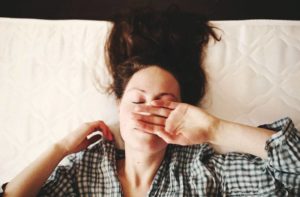 This lack of REM sleep will make the second half of your night restless and fragmented.
This lack of REM sleep will make the second half of your night restless and fragmented.
Sleep solution: The best cocktail to drink before bed? It doesn’t exist, Dr. Leavey says. “If you are going to drink, you may not be able to get to sleep or stay asleep,” he adds. (There’s a reason “happy hour” is early in the evening.) Take it easy on the booze and quit drinking a few hours before you go to bed, and you’ll give your body time to metabolize the alcohol before you try to sleep.
Sleep stealer: breathing problems
When you have a stuffy nose—whether from seasonal allergies or a cold—you’re likely to toss and turn at night because you’re struggling to breathe. But other factors can narrow your airway permanently, such as a deviated septum, nasal polyps, large tonsils, or an overly large tongue. And these conditions can increase nighttime awakenings: When researchers at the Sleep and Human Health Institute in Albuquerque, NM, studied 20 people with chronic insomnia, they found that 90% of the participants’ middle-of-the-night wakings were linked to breathing issues.
Sleep solution: It won’t treat the underlying issue, but lying on your side may help you sleep better—breathing problems tend to worsen when you sleep on your back, says Steven Y. Park, M.D., an assistant professor of otorhinolaryngology at Albert Einstein College of Medicine. If this doesn’t help, make an appointment to see an ear, nose, and throat specialist. The typical course of action is a physical exam to see if there’s a blockage in your nose or throat, says Dr. Park. The fix may be something simple like a nasal breathing strip or a device to help you breathe (such as a CPAP machine), though in some cases surgery is recommended.
Sleep stealer: sleep apnea
Many people think sleep apnea, a health condition which causes a person to stop breathing repeatedly during the night—sometimes hundreds of times, for a few seconds to a full minute—and then briefly wake up, affects only overweight men. But as women age, and especially as they go through menopause, they become just as likely as men to have sleep apnea—even if they’re at a healthy weight, says Rafael Pelayo, M.D., a sleep specialist at the Stanford Sleep Medicine Center.
But because women often have different symptoms than men do, many cases go undiagnosed. Snoring, a major tip-off that men have the disorder, is less common in women. They’re more likely to develop symptoms related to being sleep deprived, such as difficulty thinking of the right word, clumsiness, fatigue, depression, or anxiety, says Katherine Sharkey, MD, Ph.D., assistant dean for women in medicine and science at Brown University Alpert Medical School.
Sleep solution: If you notice these symptoms, tell your primary care physician—the medical community is becoming more aware that apnea isn’t just a man’s problem. If your concerns are dismissed, see a certified sleep specialist (the American Board of Medical Specialties has a list here). To determine whether you have the disorder, you’ll likely undergo a sleep test—either in a lab or at home—during which you’ll be monitored for breathing and oxygen levels throughout the night. The most common treatment for apnea is a CPAP (continuous positive airway pressure) machine, which helps maintain airflow while you sleep.
Sleep Stealer: Restless Leg Syndrome
If you wake up throughout the night or you have poor sleep quality maybe its because you have trouble falling back asleep after being awoken from restless leg syndrome. RLS is a condition that causes a person to have an irresistable urge to move their legs. Doctors think that it may be caused by a dopamine imbalance in the brain.
Sleep Solution: To ease the symptoms of restless leg syndrome, try taking a warm bath before bed. Also, establishing good sleep hygiene and regular massage can help! You can schedule your massage online now!
[…]


